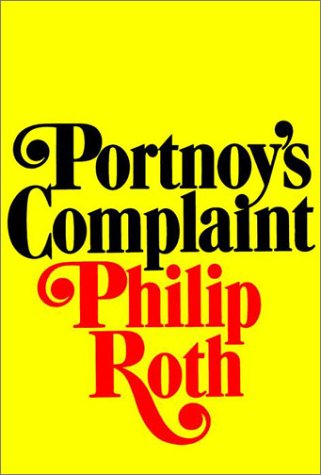The Literary World Lamp Goes Dim Again-“Portnoy’s Complaint” Author Philip Roth Has Cashed His Check At 85
A link to an NPR Open Source program hosted by Christopher Lydon who interviewed Philip Roth at his Connecticut home in 2006
http://radioopensource.org/philip-roth/
By Bart Webber
As usual Scribe, the late Peter Paul Markin, who was what amounted to our intellectual-in- residence that residence being our 1960s corner boy haven in front of Tonio’s Pizza Parlor in the Acre neighborhood of North Adamsville, was the first to hip us to the recently deceased American author Philip Roth. The book he hipped us to was the first big Roth novel Portnoy’s Complaint in 1969 while Scribe was doing his psychologically fatal tour in Vietnam. He kept raving about it being the first truly honest, if over the top, depiction of sexual acts including the no-no talk masturbation along with serious dirty language not known in earlier books, at least books we knew about. Previously he had like half the literary world touted guys like his heroes Hemingway and Fitzgerald with a little John Dos Passos thrown in (and it was mostly guys in his literary pantheon although Dorothy Parker and strangely Edith Wharton were on his top writers list). Beyond that he dared not go in our crowd, our crowd of Irish Catholic corner boys who while pissing against the wall about the ill effects of that doctrine on our love lives and our guilt trips still maintained some semblance of adherence if only as background noise in our brains.
That Irish Catholic stranglehold was no small matter when it came to anything involving Jews. That despite Vatican II of our later youth eliminating the idea of Jews as Christ-killers (my grandmother who had many good qualities never reconciled herself to that elimination and to her dying day cursed John Paul XXII for his infamy. Also hated the idea of the Mass in the vernacular although she could speak no Latin phrases when in church). Mostly this was a “street” gentile anti-Semitism, a little Jew-baiting of Jewish kids in our high school who were all the smart ones in the academic sense and we, even Scribe for a time, hated that book smart idea. It was fine to be street smart like our leader Frankie Riley but book smart was off the charts. Except when Scribe went into one of his raves. He went to his grave cursing himself for in high school not hanging out with the Jewish kids who filled up the Great Book Club which he had refused to join because of the ban on book smarts which even he tended to adhere to inside our corner boy circle. So this was not some neo-Nazi thing but a common, too common, gentile distaste and disparagement of the “other” (nice term, right). The one Jewish kid, a good kid and an athlete which held some cache with us, who tried to hang with us on the Tonio corner got the cold shoulder and after a while stopped trying to bust into our ignorant little crowd.
The fact is part of the reason we didn’t go for book smarts, except as always when Scribe got on his high horse, was we, and I in particular then did not give a fuck about books, high-brow or low. Never read much except a few times to get next to some girl who would mention some book and had I read it and off I would go to the Thomas Knowles Public Library and grab a copy. Most of the stuff was too gushy romance which I held my nose as I read. But such is the love battles. As for Jewish writers I would say I don’t remember reading any then, then in high school. Especially after Scribe would fill, try to fill, our lonely Friday nights reading some fag homo named Allen Ginsberg, a friend of Jack Kerouac, who had written a poem Howl which he insisted that we let him read once he “discovered” the Beats. Jesus, a couple of guys, Timmy Riley for one who later on became one of the great drag queens in San Francisco after he came out of the closet and maybe Jack Callahan who holds the distinction of being the sole corner boy who stayed married to one woman for life almost tore Scribe apart one night to stop his madness. Later in the Summer of Love we would be so stoned on drugs that when Scribe started to recite Howl we were all ears.
To cut to the chase about Philip Roth once Scribe gave the word that this guy had something to say even to us gentile anti-Semites about the new mores in book world where unlike in Hemingway and Fitzgerald say they merely alluded to various sexual practices and had their swears sanitized he let it all hang out we were all ears. Except here is the funny part we were talking that talk, except maybe going on and on about masturbation so much, out in the streets so I remember Frankie Riley who respected Scribe more than the rest of us wondering what the big deal was. So, yeah, Philip Roth wrote some good stuff, told a tale well, expanded the literary universe, or what was left of it back then and got a bunch of guys who probably would have not given a damn reason to read him. RIP, Philip Roth, RIP






